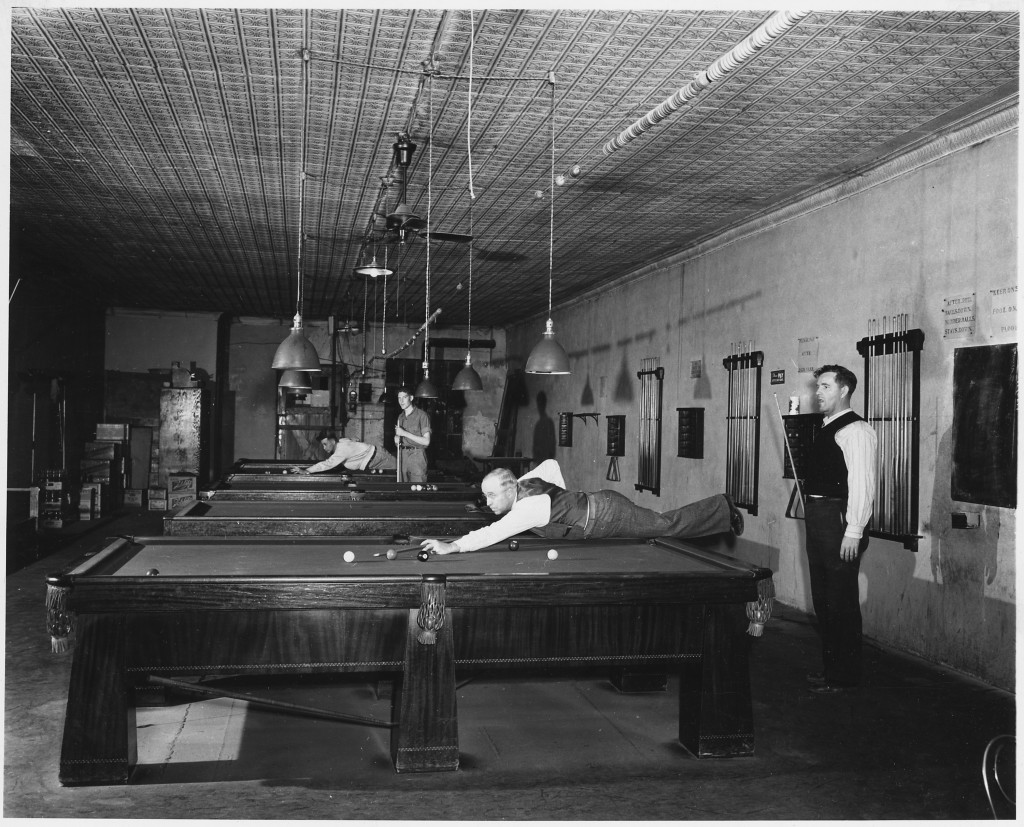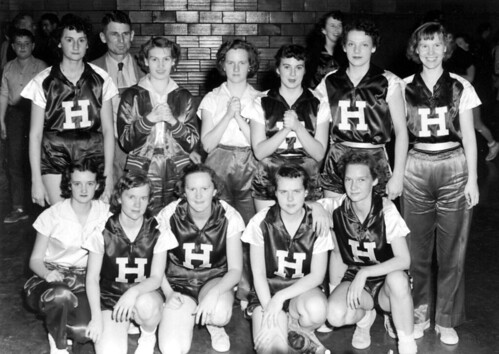Have we talked about the Brown Derby. I don’t think so. It was a pool hall in Kennett, MO. There might still be a place called “Brown Derby” but the special place I remember is long gone. It was on First Street across from the Cotton Boll Hotel (also long gone).
When I was a young boy there were a couple of pool halls on the downtown square. In the summer the doors were open and I could peer into the cool darkness. I imagine I can still hear the clicking of the balls. And the smell. Not a bad smell, but a smell I still associate with pool halls. Where was I? The Brown Derby.
I think my friends and I started going to the Derby during high school. It was important to get there early in order to get a table. Larry Miller and Larry Mullen (usually referred to as “Miller and Mullen”) were the superior players in our gang. And they took it very seriously.
 I’m sure there are no photos of the Derby so I’ll try to describe it for you.
I’m sure there are no photos of the Derby so I’ll try to describe it for you.
If you entered through the front door (on First Street) there were two snooker table just to your right (I’ll include a sketch later). Along the left side of the room was a low counter, probably with stools. On the other side of the counter, a grill where Kirk Rowland (?), the owner, made great hamburgers.
I’m fuzzy on this but I think there were four (maybe six) regular pool tables. Two across and two or three deep. These were magnificent old tables with the braided leather pockets. Not the cheap coin-operated tables that came along later. At the very back of the room was a really nasty bathroom. I don’t recall there being a MEN’s and LADIES but then don’t recall ever seeing a female in the Derby.
I remember Kirk Rowland as a crusty (literally) old guy with a twisted sense of humor. This was pre-patty so making a hamburger involved grabbing a handful of meat and flattening it for the grill. For Derby first-timers, Kirk would pretend to make the patty by flattening it in his arm pit. He sold candy bars and every time someone asked him for a Snicker, he’d hold his hand over his mouth and make this creepy little laugh. Snicker? Get it? You had to be there.
For those who have never played snooker, I won’t try to explain it. For those who have, you probably remember the wire suspended from the ceiling. It was strung with small wooden… what would you call them? … markers? When you scored a point, you’d reach up with your cue and slide a marker from one end of the wire to the other. I’ll never forget the sound.
On the regular pool tables we played nine ball, some times rotation. I want to say it cost a quarter a game. When a game was concluded, one of the player would shout, “RACK!” and the “rack boy” (I’m almost certain that’s what we called him) would bring a rack to the table and collect the money.
The only rack boy I remember is Larry Whitledge. Larry was a classmate so it was awkward — for me, at least — to shout RACK! to summon Larry. Don’t think it bothered him a bit but I never asked.
The Derby must have been full of interesting characters but I don’t remember them. Adults were invisible to us at that point in our lives. The only name that comes to mind is Gene Overall. Gene was only a year or two older than I but he seemed like a grown-up even in high school. I don’t recall ever being in the Derby when Gene wasn’t there.
As a child Gene had contracted polio (pre-vaccine) and had lost most of the use of his left arm. This, however, did not prevent him from becoming wickedly good snooker player (I never saw him play anything but snooker). Gene would slowly circle the snooker table and when he was ready to shoot, he’d swing his bad arm up the table and make a bridge. Then that slow, smooth stroke the good snooker players all had. Click. The over to the wire and zing!
The image above is Sublette’s Pool Hall in Hasskell County, Kansas. It nicely captures the feel of the Brown Derby

Sublette’s Pool Hall in Hasskell County, Kansas

 I’m sure there are no photos of the Derby so I’ll try to describe it for you.
I’m sure there are no photos of the Derby so I’ll try to describe it for you.
